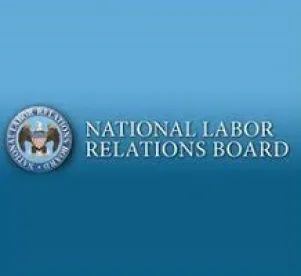The National Labor Relations Board is affording dozens of employers the chance to have cases involving the legality of their workplace rules re-evaluated under a 2017 Board decision. The Board decision overruled Obama-era Board precedent that hampered employers’ ability to maintain workplace conduct rules without running afoul of the National Labor Relations Act. The Board’s new initiative, first reported by Bloomberg Law, involves remanding numerous cases that held against employers for reconsideration by NLRB administrative law judges.
Workplace rules have been a contentious issue under federal labor law for years. In 2004, the NLRB issued its controversial decision in Lutheran Heritage Village-Livonia, 343 NLRB 646 (2004), which set a tough standard to determine whether workplace rules, policies, and handbook provisions unlawfully interfere with rights of employees protected by the Act. In Lutheran Heritage, the Board held that a neutrally worded rule would violate the NLRA if employees may “reasonably construe” the rule to prohibit an employee’s exercise of his or her protected rights. Lutheran Heritage made it considerably harder for employers to maintain otherwise benign-sounding handbook provisions prohibiting rude or disruptive workplace behavior.
In 2017, after the composition of the Board shifted to a Republican majority, the NLRB issued Boeing Co., 365 NLRB 154 (2017). In Boeing, which overruled Lutheran Heritage, the Board held that determining whether an employer rule is unlawful involves a balancing test that measures the rule’s impact on employee rights against an employer’s legitimate business interests in maintaining the rule. The Board created a three-tiered rules classification system: “Category 1” rules are those the Board has specifically designated as lawful; “Category 2” rules are those that require individualized scrutiny to determine their legality; and “Category 3” rules are those specifically designated by the Board as unlawful.
On June 8, 2018, the NLRB’s General Counsel, Peter Robb, issued a memo providing specific examples of which rules would fall into each of these categories. For example, the General Counsel’s memo identified as a Category 1 rule one that prohibited “behavior that is rude, condescending or otherwise socially unacceptable.”
The Board’s latest action remands at least 40 workplace rules cases for a fresh look under Boeing. Any new decisions will strengthen Boeing as precedent. Moreover, the new decisions certainly will provide employers clear examples of what employee conduct they can and cannot prohibit or limit through workplace rules.





 />i
/>i

